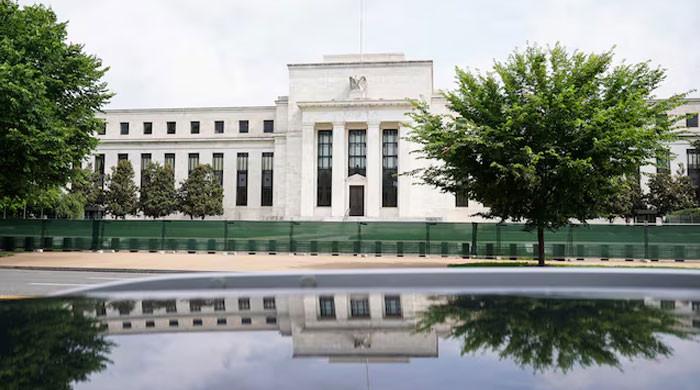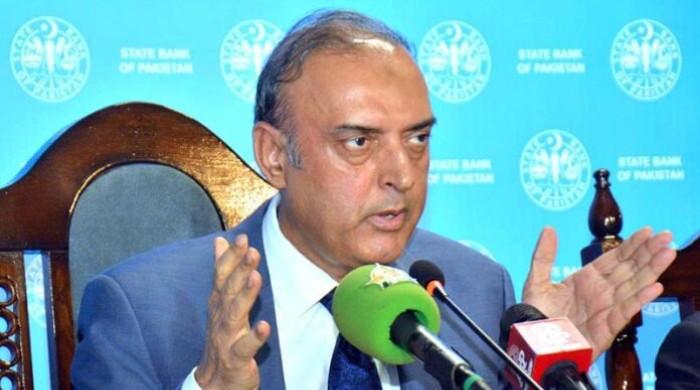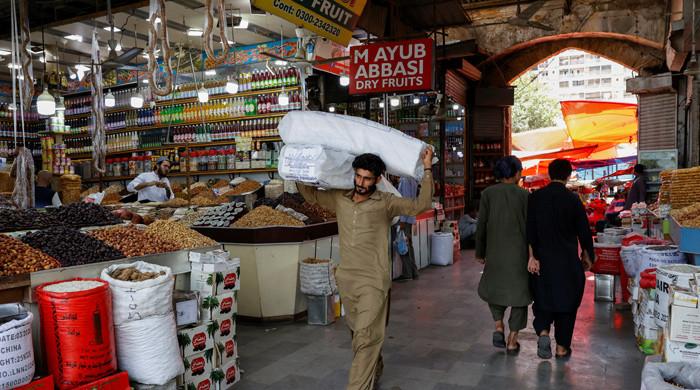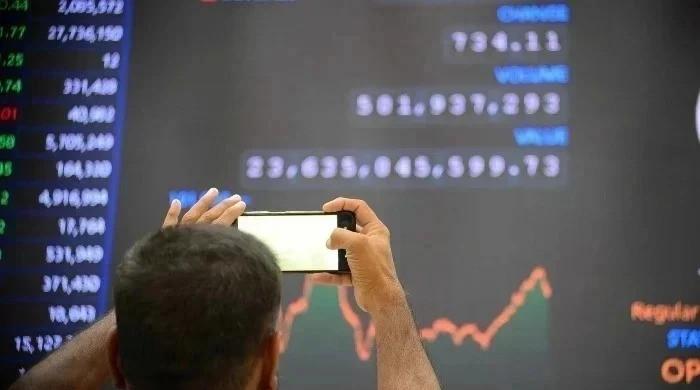Why does Pakistan have Rs5,000 note, asks former FBR chairperson Shabbar Zaidi
Shares stats of Rs5,000 note's relationship with GDP in comparison with lower currency denominations of countries like UK, USA
February 02, 2021

- Former FBR chairperson Shabbar Zaidi confused why Pakistan using Rs5,000 note
- Last week, Zaidi said government should demonetise Rs5,000 note from July to curb bribery
- Zaidi believes that the move will improve documentation of the economy and ensure that banking prospers
Former Federal Board of Revenue Chairperson Shabbar Zaidi wants to know why Pakistan has the Rs5,000 note.
He says it is "unjustified".
Zaidi shared his views on the currency note on Twitter Tuesday.
He compared the currency demoniations of Pakistan with other countries like India, Bangladesh, USA and UK.
The ex-FBR chairperson also attached a document detailing the relationship of currency notes with GDP from 2017-19.
Small currency units make transactions documented or transparent, he said in another tweet, adding that big units are 'not islamic'.
Last week, Zaidi said the government should go for the demonetisation of the Rs5,000 note from July onwards.
The accountant said that in order to go through with the demonetisation, the government should announce a "transition" period so that the plan goes smoothly.
Read more: Demonetisation of Rs5,000 note will help curb bribery: ex-FBR chief Shabbar Zaidi
Zaidi believes that those against demonetisation have "no idea about abuse" and claimed that vested interests doe not let the benefits of the move come forward.
The former tax czar believes that the demonitsation will improve the economy and help the banking sector.
What is demonetisation?
According to website Investopedia, demonetisation is the act of stripping a currency unit of its status as legal tender.
"It occurs whenever there is a change of national currency: The current form or forms of money is pulled from circulation and retired, often to be replaced with new notes or coins. Sometimes, a country completely replaces the old currency with new currency," explains the website.
In this case, it simply means that the Rs5,000 note should cease to exist and hold value.
Read more: Pakistanis own $150b lying in foreign bank accounts, says former FBR chairperson
However, the move is seen as a drastic intervention as it directly affects the "medium of exchange used in all economic transactions".
But economists believe that the move can help stabilise a country's existing problems but also warn that if the move is taken suddenly of drastically then it can also lead to chaos.
The most recent country to carry our demonetisation was India. Demonetisation there was done by the Narendra Modi led government in 2016.
Read more: Reversing zero rating of Pakistan export sector regressive, says Shabbar Zaidi
The BJP-led government had ordered the pullout of 500 and 1,000 Indian rupee notes from circulation to tackle widespread corruption and tax evasion.
New Delhi ordered that while people could exchange their old notes for new bills at banks or post offices until the end of the year, or deposit them in their accounts, they would no longer be legal tender from midnight on November 8, 2016.
"To break the grip of corruption and black money, we have decided that the 500 and 1,000-rupee currency notes presently in use will no longer be legal tender from midnight that is 8 November, 2016," Modi had said in a televised address to the nation.











